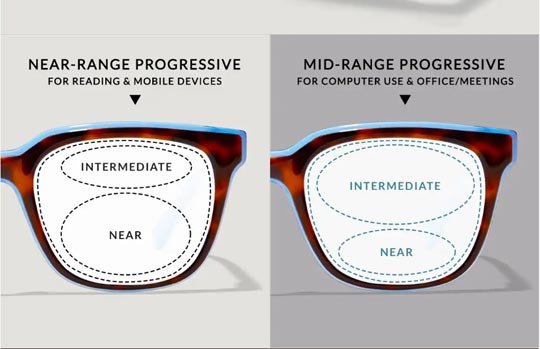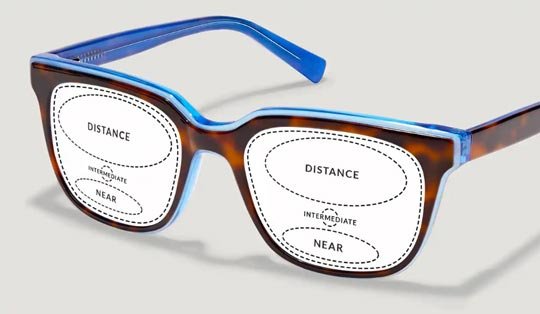I have been wearing progressive eyeglasses for well over 20 years. While they work well for distances and driving, they are a compromise with computer monitors and reading books/eBooks. Choosing a frame with a taller and wider lens area didn't help all that much.
Lately, I've been finding myself wanting to read for enjoyment more. I have been leaning toward getting a pair of prescription reading glasses. OTC won't work because one eye is weaker than the other, and with my +2.00 ADD on the progressives (left: +3.50 total; right: +4.50 total) means that nearly all OTC won't be strong enough.
But I wonder if I might be better off with progressive computer glasses. I can sit a lot of the day at a computer screen doing various tasks, although there are some days because of the constant shifting of my neck and refocusing where it can be quite fatiguing.
Does anyone use progressive computer glasses for reading? I get that there are various types of computer glasses with different focusing distances. Some concentrate in the 3 foot range, which is usually for a monitor or reading. Others are in the 5-6 foot range, which generally covers the desk area, and still others that extend to 10-13 feet which would be useful in a conference room and table.
Lately, I've been finding myself wanting to read for enjoyment more. I have been leaning toward getting a pair of prescription reading glasses. OTC won't work because one eye is weaker than the other, and with my +2.00 ADD on the progressives (left: +3.50 total; right: +4.50 total) means that nearly all OTC won't be strong enough.
But I wonder if I might be better off with progressive computer glasses. I can sit a lot of the day at a computer screen doing various tasks, although there are some days because of the constant shifting of my neck and refocusing where it can be quite fatiguing.
Does anyone use progressive computer glasses for reading? I get that there are various types of computer glasses with different focusing distances. Some concentrate in the 3 foot range, which is usually for a monitor or reading. Others are in the 5-6 foot range, which generally covers the desk area, and still others that extend to 10-13 feet which would be useful in a conference room and table.
Last edited:


